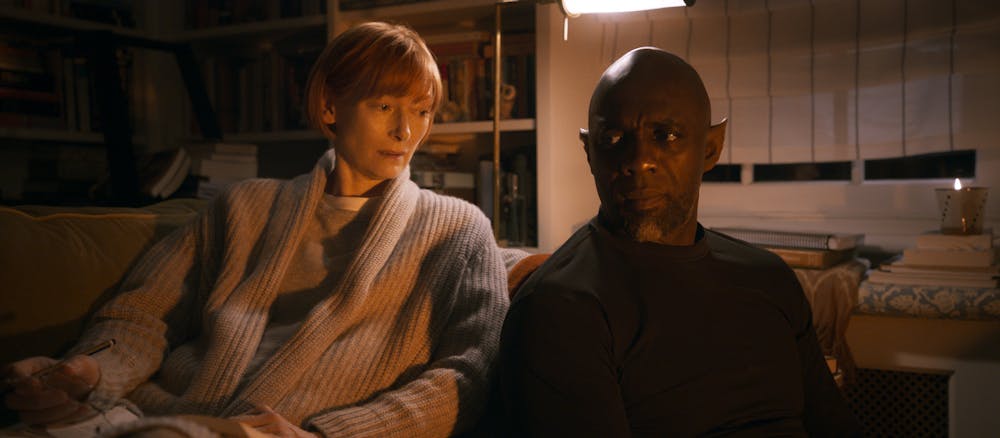Movie: "Three Thousand Years of Longing"
Release Date: Aug. 26, 2022
Director: George Miller
Run Time: 1 hour and 48 minutes
Genre: Drama, Romance, Fantasy
Rating: A
It was always going to be impossible for George Miller to follow up "Mad Max: Fury Road" with another gripping thrill ride. Happily, he didn't try to. By combining maximalist visuals with a strong emotional core, he succeeded in switching genres with an incredible, swooning romance.
"Three Thousand Years of Longing," written by Miller and his daughter Augusta Gore, follows Alithea Binnie (Tilda Swinton) as she discovers a djinn (Idris Elba), a genie who wants to grant her deepest wish. Unfortunately, Binnie is a narratologist, someone who studies stories, and she knows all about the dangers of wishing.
To reach Binnie, the djinn tells her the long history of his time in and out of his bottle. Just as it seems the movie will be two older actors sitting and talking, Miller quickly imbues his signature maximalism into the movie.
Miller successfully interrogates desire and its costs, but he revels in its excess. The djinn tells three stories, the first two taking place concerning the luxury of historic royals and their palace intrigue. The court of the Queen of Sheba is filled with interesting characters and lush details, and the palace of Suleiman is a winding maze with rooms dedicated to pleasure. No matter where the viewer looks, there's always something magical.
Despite the grand violence and betrayal in these stories, Miller always finds the emotional core in the djinn’s earnest desire to help. Nowhere is this more evident than in the final story of Zephir, a young genius who, stifled by her husband, wishes for knowledge.
The djinn gives her books and the ability to see the world as he does, combining his fantasy with her science. Miller pairs her with shimmering, sometimes scary visuals, highlighting her extremes. When she works she's a woman possessed, staring straight ahead while the air around her glitters with lines of math problems. When she rebels against her husband, she's plunged underwater, taking him with her. The tension arises between the djinn's love for her and his need to help her.
In climatic scenes, Elba plays melancholy well, showing his 3,000 tragic years in a world that increasingly rejects his imaginative view of life. He is a compelling, trustworthy storyteller, truly believing in the promise of love.
Ultimately, the film is about the power of stories. While Binnie tries to reduce them to basic tropes, the djinn proves his stories cannot be easily quantified. They are not tales of morality, but humans struggling and contradicting themselves in an attempt to find connection.
In a time of optimized content, Miller argues for the human element at the heart of our best stories, ones that drive people to take action and change their lives for the better. By operating on such theatrical terms, he adds new urgency to his message, asking the audience to find the emotional magic in their own lives.

